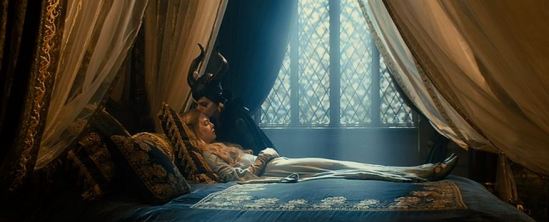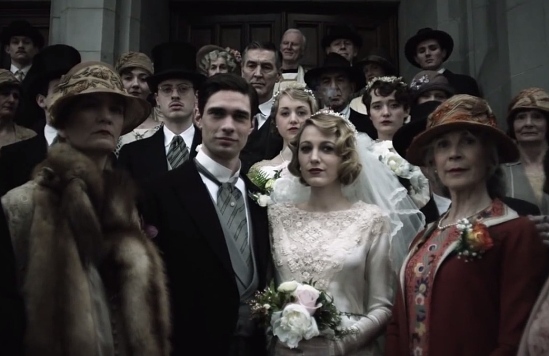 By now, there have been so many thoughtful and decent reviews of Wonder Woman that I don’t have to repeat them but just cite them for you. Whatever I have to say, they already have said it better. Here are the points that shine in this film:
By now, there have been so many thoughtful and decent reviews of Wonder Woman that I don’t have to repeat them but just cite them for you. Whatever I have to say, they already have said it better. Here are the points that shine in this film:
—
—
—
SPOILER ALERT
—
—
—
——1. The film models a healthier and truer feminism, one that Susan B. Anthony and her fellow suffragettes would be somewhat approving of, considering how wayward feminism has become (seeing all men as the enemy, but also seeing men as the standard, is not helpful, much less realistic). Here, let me quote from this Verily Magazine article:
Yet the film’s most compelling moments are when Diana and Steve’s characters are complementing each other. When struck with the painful sight of war, she is unafraid to show her emotions. And when confronted with a baby for the first time in London, she becomes excited. It is in such moments that Diana’s strength has an authentically feminine quality, emphasized more clearly by her contrast with Steve. When she is passionate, Steve is practical. When she is emotional, Steve is rational. But all these qualities are necessary to the success of their mission.
——2. The mythology of Zeus and Ares awfully reminded me of the Fall of Lucifer, to the point I think that this is not original to genuine Greek mythology, but is a Hollywood revision (using Christianity) to help make Diana’s origin story more compelling, and why not? After all, the Christian belief of the creation and fall of the angels from Heaven is super powerful and meaningful, and true. (And BTW: real “gods” don’t die.) Supporting this hunch is the movie reviewing Dcn. Greydanus:
Diana believes that mankind is basically good, reflecting the good deity in whose image we were created, though we have been led down the wrong path by a malign spiritual influence. The catch is that the good deity in question is Zeus, whom we are told brought Diana to life from clay. Also, the malign spiritual influence is Zeus’ son Ares, the Greek god of war, albeit a version of Ares more like Lucifer than anything in Greek mythology.
——3. And now for the negative, the weakness of Wonder Woman that I am so sad happened. In fact, while I was watching the scene, I had hoped so much that Steve would be the dignified gentleman I had reckoned him to be, but instead of escorting Diana to her bedroom, and then leaving her to her privacy, he spends the night with her in a way only her husband should be privileged to spend. To me, this was very sad considering how much virtue Diana had been inspiring in the men around her. The film would have been so much the better for this scene to have been otherwise, instead of following the lame and usual Hollywood formula of fornication/adultery. Imagine with me:
Steve walks Diana to her quarters for the night, and they share a gaze as he backs toward the door. She doesn’t want him to leave, nor does he want to leave either, but he knows that leaving would be the best way to respect and honor her. She knows this too, and knows that despite how attracted they are to each other, for him to have the will power, the self-control, and the love to treat her better, would be an incredible sign of how much he values her. This would have made their love grow even more.
Love grows when it is protected by chastity. For Steve to have honored Diana’s chastity (and his, too) would have showed true love for her in a way that fornicating with her could never. This was such a weakness that could have been so much stronger for the film. This was a missed opportunity for the film to become something even more special. And we need special in this broken-and-fake-love culture of ours.
 Even worse: we see only later that Steve finally says that he loves Diana when he is about to sabotage the poison plane. So let’s get this straight: they share a night in bed, and only much later does Steve express his love to Diana? First they have sex, and then comes love? How backward is that? Shouldn’t love come first? This reminded me of how backward things are in another typical and lame Hollywood fornication story: the Age of Adaline:
Even worse: we see only later that Steve finally says that he loves Diana when he is about to sabotage the poison plane. So let’s get this straight: they share a night in bed, and only much later does Steve express his love to Diana? First they have sex, and then comes love? How backward is that? Shouldn’t love come first? This reminded me of how backward things are in another typical and lame Hollywood fornication story: the Age of Adaline:
Unfortunately however, the emphasis on marriage’s demands for fidelity is conflicted with Adaline and Ellis sleeping together. What is really jarring though is when Ellis tells Adaline that he is falling in love with her… but only after they had been sleeping together for a few weeks. Now doesn’t this seem strange? That they had been sharing their nights together before there was love in the relationship? Did Ellis not love Adaline all that time prior? It sure seems that way in the film’s dialogue. So then what… love comes after sex? Doesn’t that seem backward? Shouldn’t love come first? Before anything? Before everything? Sex is meaningless without love, and for Ellis to bring up love this late in the timeline is lame to me. First, you meet her, get to know her, then love her, commit to her, vow to her before witnesses that you’ll be hers, be married to her, and only then give your body and soul to her, all the while choosing to love again and again. That’s the order. Going backward, or hopping around is just weird when the rest of the film encourages faithfulness and seriousness in marriage. This was one messed up moment in an otherwise decent film.
There was more mutual love and respect when they rested chastely on the boat, sailing to England, but alas… Patty Jenkins, Chris Pine, and Gal Gadot missed this chance to shine up Wonder Woman even more. To see more about this epic failure, please see this Verily article, from a young woman’s perspective and hard learned lesson.
——4. That all being said, I did enjoy this film and wouldn’t recommend you pass it up if you have the time to see it. Since the Dark Knight trilogy from Christopher Nolan, DC Comics has been in the dumps with their films, but Wonder Woman shows that a come-back is possible!
——Bonus: Did you know Gal Gadot is a happy and proud mother who filmed the movie while she was 5 months with child? Read more here!
——Bonus two: Check out this list of pro-life insights from the movie.


 Recently, a dear friend of mine requested I should view and review one of her favorite films. At first I was reluctant, because I had heard negative reviews about Maleficent, and I also secretly dislike Angelina Jolie as an actress (yes, she bores me). But after giving the film a look, here are the really powerful moments of the tale:
Recently, a dear friend of mine requested I should view and review one of her favorite films. At first I was reluctant, because I had heard negative reviews about Maleficent, and I also secretly dislike Angelina Jolie as an actress (yes, she bores me). But after giving the film a look, here are the really powerful moments of the tale:

 As soon as the
As soon as the 


 Last weekend, a book became a movie that should’ve never even been a book in the first place. But alas, here it is… 50 Shades of Grey.
Last weekend, a book became a movie that should’ve never even been a book in the first place. But alas, here it is… 50 Shades of Grey.








